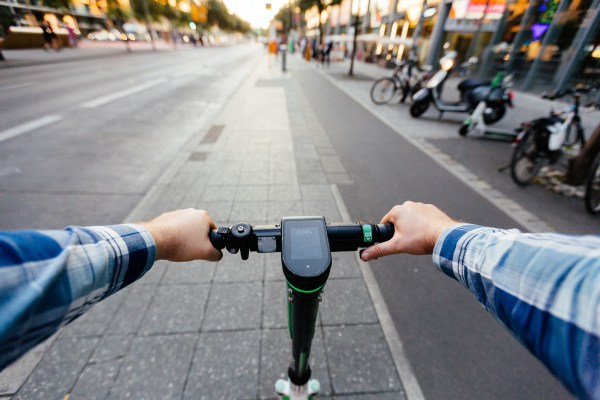
The desire to achieve something as simple as keeping shared electric scooters off sidewalks has driven the development of some advanced technology in the micromobility industry. Once the province of geofencing, scooter companies are so eager to get a leg up on the competition that they’re now implementing technology similar to advanced driver assistance systems (ADAS) usually found in cars.
Operators like Spin, Voi, Zipp, Bird and Superpedestrian are investing in camera-based or location-based tech that can detect and even correct poor rider behavior, sometimes going to the extent of slowing scooters to a stop if they’re riding on a sidewalk.
People riding or parking scooters on sidewalks is a big problem for cities and forms one of the main complaints from NIMBYist residents who dislike change all the more when it becomes a tripping hazard. Companies are trying to solve this problem with tech that effectively puts the onus of rider behavior on operators, which may result in cities requiring scooter operators to have this sort of ADAS tech.
Scooter ADAS is probably the most doable and cost-effective method that cities can use to prevent unwanted rider behavior. And, it’s far cheaper than trying to police rider behavior themselves, or, address the lack of protected cycling infrastructure.
“This technology comes from a need for protected bike lanes,” said Dmitry Shevelenko, co-founder and president of Tortoise, an automated vehicle positioning service for micromobility companies. “It exists in this world where riders kind of have to do things that aren’t that great for others, because they have nowhere else to go. And so that’s the true driver of the need for this.”
Cities can solve this problem for the long term by building bike lanes or creating scooter parking bays, but until that happens, operators need to reassure local administrations that micromobility is safe, compliant and a good thing for cities.
“Until cities have dedicated infrastructure for whatever new modality comes to play, you have to figure out a way to use technology to make sure things don’t mix poorly,” said Alex Nesic, co-founder and chief business officer of Drover AI, a computer vision startup that provides camera-based scooter ADAS. “That’s really what we’re after. We want to enable this kind of maturation of the industry.”
Street views versus satellite views
Drover AI works with Spin, while Luna, another computer vision company, works with Voi and Zipp to attach cameras, sensors and a microprocessor to scooters to detect lanes, sidewalks, pedestrians and other environmental surroundings.
social experiment by Livio Acerbo #greengroundit #techcrunch http://feedproxy.google.com/~r/Techcrunch/~3/AOZk5-weUTw/
